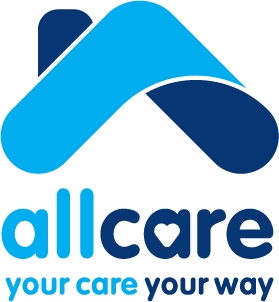A guide to falls prevention in older adults living at home
Falls are the leading cause of unintentional injury in older Australians. As our population ages and the number of older people grows, the likelihood of more falls and fall-related hospitalisations increases.
Slips, trips and falls can happen to anyone, but they become more common and more significant as we get older, due to the heightened likelihood of sustaining injuries. Even when falls don’t cause an injury, they often trigger a loss of confidence as we get older and can lead to an ongoing fear of falling. Over time, this can lead people to limit their movements and reduce their activity, which further increases the risk of falling.
4 FACTS ABOUT FALLS:
Nearly 1 in 4 older Australians have experienced a fall in the past 12 months.
Falls usually happen because gradual changes to our bodies make walking difficult, or they can be caused by hazards in and around the home.
Falls can cause hip fractures and other injuries that require lengthy hospital care and have long-term effects.
See your doctor for a check-up if you have ever fallen before, even if you weren’t injured as a result.
LET’S START WITH THE GOOD NEWS:
Many falls are preventable
Injury from falls can be minimised
Ageing does not have to mean a loss of independence
5 AGE-RELATED CHANGES THAT CAN AFFECT MOBILITY IN OLDER ADULTS:
Our bodies change gradually over many years as part of the normal ageing process. As we get older, the following may start to happen:
Balance problems, such as feeling unsteady when you walk
Weaker muscles that, for example, make it harder to lift your feet when you walk
Poorer eyesight, meaning you don’t see quite as clearly, or have difficulty with sudden light changes or glare
Slower reaction times
New health problems, such as incontinence or dementia
These changes can be due to normal ageing or they might be caused by an illness or condition, affecting the way we move around, which could cause a fall.
DANGERS IN AND AROUND THE HOME THAT CAN LEAD TO FALLS:
Nearly 2 out of 3 falls happen in and around the home. Common household hazards include:
Poor lighting
Unsafe footwear, such as loose slippers or narrow heels
Slippery surfaces, such as wet or polished floors, or spills
Trip hazards like rugs, floor mats and electrical cords
Steps and uneven surfaces.
HOW CAN FALLS BE PREVENTED?
There are many practical ways to reduce the risk of falls occurring, including the following lifestyle changes:
Keep physically active
Whatever your age, aim to do at least 30 minutes of activity, five times a week that will help make you stronger and improve your balance. Suitable activities include tai chi, dancing, group exercise programs, walking, hydrotherapy and yoga/seated yoga.Eat healthily
Enjoy a wide variety of foods and drink, particularly during hot weather. Incorporate a variety of fruits, vegetables, whole grains, lean proteins, and stay hydrated by drinking plenty of water.Stand up slowly
After you have been lying down or sitting, stand up slowly to prevent posture-related dizziness.Changes around the home
You can reduce the risk of falling by making small changes around the home to three types of potential hazards found: lighting, slipping, and tripping.
WORK WITH AN ALLIED HEALTH PROVIDER OR GYM TO REDUCE YOUR RISK OF FALLS
Illawarra recreational fitness and allied health provider SAVVY is a holistic solution for clinical therapies and recreational movement and is at the forefront of the true meaning of health and wellness. They can help with preventing falls by working with you to develop a program to build strength, advise on what exercises to do, things you can do to reduce your risk of falling, and what to do if you have a fall. You can also work with a Podiatrist for advice on ways to improve your circulation, decrease swelling and reduce pain in the legs and feet. Contact the team at SAVVY if you would like more information on falls prevention. No referrals necessary.
P 1300 942 895 E info@savvyco.com.au
If you or someone in your care has experienced a severe fall, go to your nearest emergency department or call triple zero (000) immediately and ask for an ambulance.




